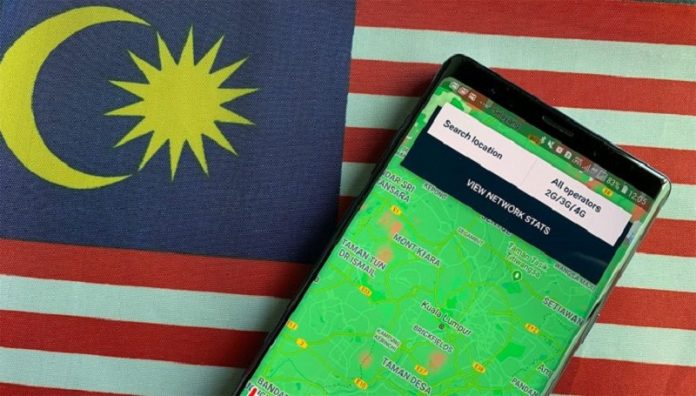
KUALA LUMPUR, Dec 9 — Under the Jendela plan, Malaysia aims to increase 4G population coverage from 91.8 per cent to 96.9 per cent while boosting average mobile broadband speeds to 35Mbps.
To provide a quick snapshot of the current situation, Opensignal has released a new report which include Malaysia’s 4G availability, speed and experience rating for video, gaming and voice for the period between 1st August to 29th October 2020.
According to Opensignal, the national average 4G availability is currently 86 per cent and this means the average Malaysian is connected to 4G networks 86 per cent of the time.
Out of all states and territories, Kuala Lumpur is the only one with more than 90 per cent 4G availability, followed closely by Pulau Pinang (89.7 per cent), Putrajaya (89.5 per cent), Selangor (88.8 per cent) and Melaka (87.3 per cent).

Although it comes to no surprise that Sabah and Sarawak has lower 80 per cent and 79.6 per cent 4G availability respectively, the state of Kelantan has the worse with 79.2 per cent availability.
When it comes to 4G download speed, the current national average is 12.7Mbps which is a third of the targeted 35Mbps download speed under the Jendela plan.
Both Kuala Lumpur and Putrajaya record at least 16Mbps, followed by Selangor at 13.9Mbps and Pahang at 13.7Mbps.

Interestingly, Sarawak’s 4G download speed is above the national average at 13Mbps.
According to Opensignal’s findings, Kelantan, Sabah, Perlis and Kedah did poorly in 4G speeds as the 4 states recorded an average of 10.5Mbps-10.8Mbps for downloads.



4G download speed is just one metric and Opensignal has looked into real world experiences such as video streaming, voice and mobile gaming.
Consumers in the Klang Valley as well as Pahang and Negri Sembilan are getting pretty good scores for video with an average wait time of 3.0-3.5 seconds for a video to start playing.
However, in the states of Kedah, Kelantan and Sabah, the experience becomes less consistent with a wait time of about 4 seconds. A similar situation is also found for Opensignal’s 4G voice app experience.

When it comes to gaming, most states in Malaysia are having “Poor” experience while the states and territories of Putrajaya, Kuala Lumpur, Pahang and Selangor are rated “Fair”.
For this metric, Kedah, Labuan, Kelantan, Sarawak and Sabah are sitting at the bottom of the list with a 4G Games Experience score of under 60 points. This is due to the massive latency and packet loss recorded as shown above.
According to Opensignal, the variation in experience highlights the connectivity gap that exists between high density and sparsely populated areas in Malaysia. This also illustrates the challenges faced by operators to provide a uniform experience across the country.
As highlighted previously, mobile data consumption has surged during the movement control order and the mobile experience has deteriorated significantly especially with the free data offer.
A number of telcos have made improvements to cope with the high data demand but some are still struggling to restore its original 4G speeds.
In case you missed it, Malaysia has put its 5G rollout plans on hold until 2022.
Authorities target to shut down 3G networks completely by end 2021 which will free up spectrum capacity to optimise the current 4G network. — SoyaCincau



